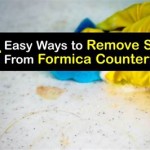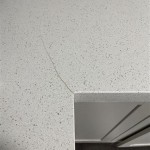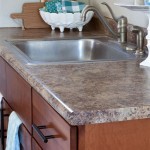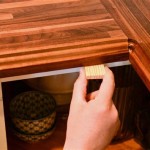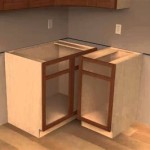How To Resurface Quartz Countertops
Quartz countertops, known for their durability and beauty, can still develop scratches, chips, or stains over time. While quartz is generally resistant to these imperfections, it's not entirely impervious. Fortunately, there are methods for resurfacing quartz countertops to restore their pristine appearance and extend their lifespan.
Understanding Quartz Countertops
Quartz countertops are engineered stone surfaces composed primarily of finely ground quartz crystals mixed with resins, pigments, and other additives. This composition provides quartz countertops with exceptional durability and scratch resistance, far exceeding those of natural stone like granite or marble. However, quartz is not completely impervious to damage.
Scratches, chips, and stains can still occur, particularly from sharp objects, impact forces, or spills left unattended. While these imperfections may not penetrate deeply into the quartz surface, they can affect the countertop's aesthetic appeal. Resurfacing methods can address these issues, restoring the surface to its original state.
Before attempting any resurfacing technique, it is crucial to determine the nature and extent of the damage. Minor scratches or surface stains may be addressed with simple polishing techniques. Deeper scratches or chips may require more involved methods, such as epoxy filling or professional restoration.
Resurfacing Methods for Quartz Countertops
1. Polishing for Minor Scratches and Stains
For minor scratches and stains, polishing is often the most effective resurfacing method. This process involves using abrasive pads or cloths to smooth out the surface imperfections. Polishing materials range from fine-grit sandpaper to specialized polishing compounds.
Start with a fine-grit sandpaper and gently rub the affected area in a circular motion. Gradually increase the grit level as needed to remove deeper scratches. After sanding, apply a polishing compound with a soft cloth and buff the surface to restore its shine. It is essential to work in a well-ventilated area and wear appropriate protective gear, including a mask and gloves.
2. Epoxy Filling for Deeper Scratches and Chips
Deeper scratches and chips may require epoxy filling to repair the damaged surface. Epoxy is a durable adhesive that hardens like plastic, providing a strong bond and filling the gaps caused by chips or deep scratches.
Before applying epoxy, thoroughly clean the damaged area with soap and water. Allow the surface to dry completely. Apply epoxy according to the manufacturer's instructions, ensuring that it completely fills the chip or scratch. Once the epoxy is dry, sand it smooth and polish it to match the surrounding countertop surface.
3. Professional Restoration for Severe Damage
For severe damage, such as deep chips, cracks, or extensive staining, professional restoration is often the best option. Professional restorers have specialized tools and techniques to repair quartz countertops and ensure a smooth and durable finish.
They may employ methods like sanding, grinding, and polishing to restore the surface to its original condition. Professional restoration may also involve using specialized resins or acrylic paints to match the countertop's color and pattern.
Professional restoration is generally more costly than DIY methods but provides the most comprehensive and durable solution for severe damage. It is recommended to consult with a trusted countertop professional for an assessment and quote before proceeding with professional restoration.
Maintenance Tips for Quartz Countertops
While resurfacing can address existing damage, regular maintenance can help prevent future imperfections and extend the life of your quartz countertops. Following these tips will ensure your countertops remain beautiful and functional for years to come:
•
Clean regularly:
Wipe down your countertops with a mild soap and water solution after each use. Avoid using abrasive cleaners or sponges that could scratch the surface. •Protect from heat:
Use trivets or hot pads when placing hot pots or pans on the countertops. Excessive heat can damage the surface, especially near seams or edges. •Avoid harsh chemicals:
Avoid using harsh chemicals like bleach or ammonia on your countertops. These can damage the surface and dull its shine. •Use cutting boards:
Always use cutting boards when preparing food on your countertops. This will prevent scratches and knife marks from damaging the surface.By understanding the properties of quartz countertops and implementing the appropriate resurfacing techniques, you can effectively restore their appearance and enhance their longevity. Regular maintenance practices will further contribute to keeping your quartz countertops looking their best for years to come.

Diy Kitchen Countertop Makeover

How To Diy White Quartz Countertop Resurfacing Kits Leggari S New Kit Youtube

Think Twice Before Using Paint To Update Quartz Countertops

How To Resurface Kitchen Countertops Let S Paint Furniture

How To Resurface Kitchen Countertops Let S Paint Furniture

Epoxy Makes White Quartz Countertops Affordable

Diy Marble Epoxy Over Old Granite Countertops How To Do

Resurfacing Kitchen Countertops Pictures Ideas From

How To Polish Quartz Countertops The Ultimate Guide

Countertop Refinishing Fort Lauderdale Resurfacing
See Also

